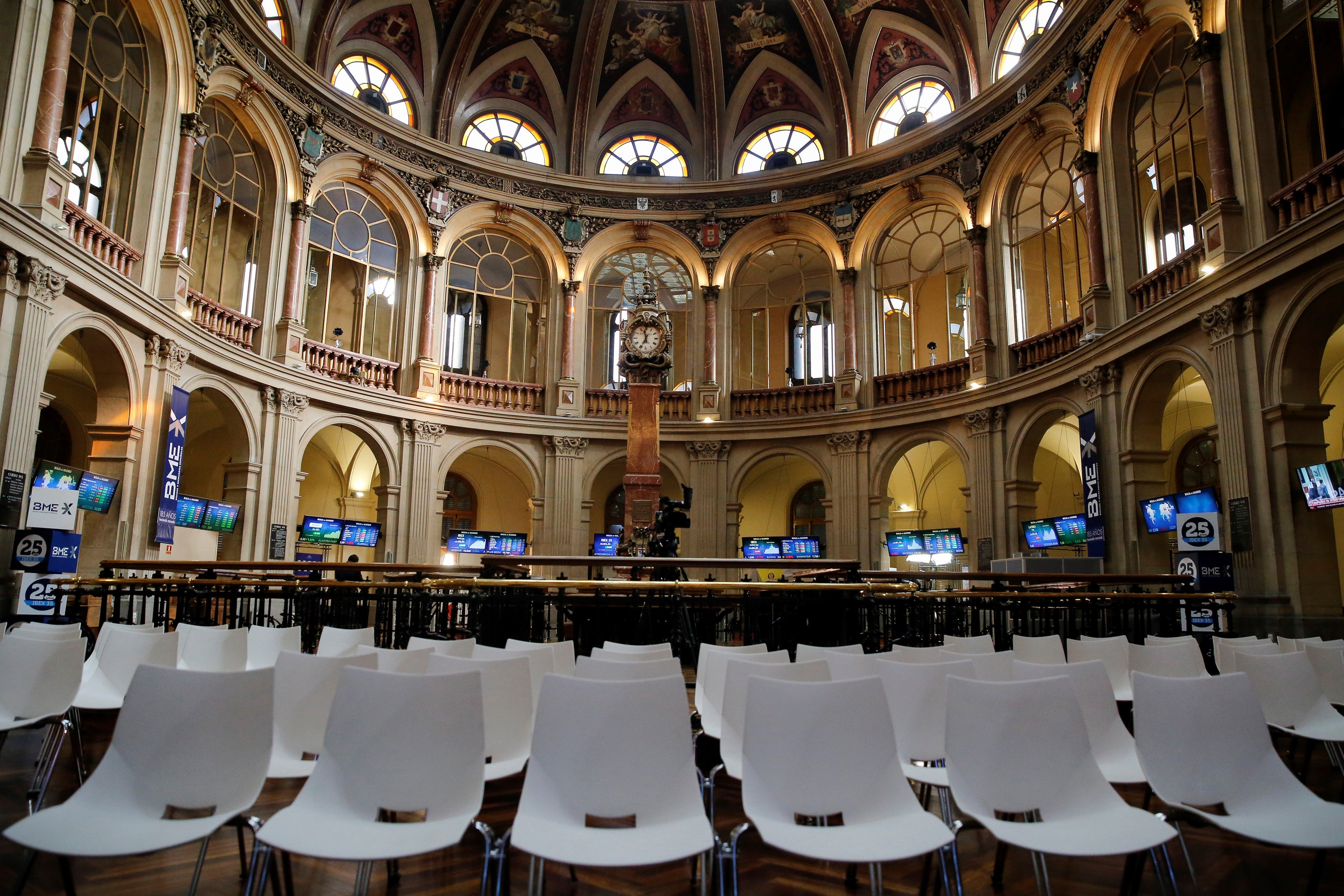The coronavirus Covid-19 has today walked Spain's Ibex 35 share index off the edge of a cliff: the market indicator has ended its worst ever session in Madrid this Thursday with a one day loss of 14.06%, and it now stands at 6,390 points, a return to the levels of 2012. The Spanish stockmarket was incapable of any resistance to the pandemic, after the European Central Bank (ECB) announced extraordinary liquidity measures and purchases to address the virus crisis, while maintaining interest rates at 0%. This was rejected by investors, and the stock market reacted by going into even steeper decline.
This fall is in line with the other European markets. According to analytics firms, Italy's decision to end all trading and the US blockade of European flights brought the crisis to a new dimension. The companies who performed worst were those in the industrial sector, airline-related companies and banks. Specifically, the ten stocks that led the losses were, in order, Ence (), ACS, Banco Sabadell, Amadeus, Banco Santander, Acciona, Arcelormital, IAG, BBVA and Bankia. Those that have lost least are Viscofan, Mapfre, Másmovil and Grífols.
A black afternoon. At 2:30pm, when the ECB announced measures to respond to the coronavirus, the Ibex had already fallen more than 8%, then by 3:20pm this had worsened to an 11% loss, with the index standing at 6,600 points, with the final closure at 14%. In fact, the index already opened its session this Thursday with a steep 6% loss, falling through the 7,000 point barrier, even before the ECB's anouncement was made.
Today's bad news
International markets seemed to be recovering after this week's Black Monday (when the Ibex fell 8%), hopeful that measures would be taken by governments to alleviate the effects of the health-led crisis. But after Donald Trump's overnight announcement to suspend all flights between Europe and the US to prevent contagion, the share market crash was general, and the Ibex was dragged with the others. The WHO's declaration of a pandemic was also read as more bad news.
With this drop the Spanish market has lossed a massive 30% of its value since 18th February.
ECB measures
The European Central Bank responded to the economic shock caused by the coronavirus pandemic with a new stimulus package that injects liquidity into banks in order to keep the credit tap open for companies, while it also expands its asset purchasing programme by 120 billion euros. However, banks were expecting the ECB to finally decide to raise interest rates, which have been at rock bottom level for months, and thus to encourage investment.
This additional purchasing is on top of the 20 billion euros of public and private debt acquisition already decided. The board of the Eurozone monetary authority decided at its meeting this Thursday not to alter interest rates, which remain at 0%, while the deposit facility rate remains at -0.5%.

